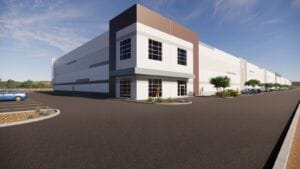The growth of online grocery sales could result in demand for up to 35 million square feet of U.S. cold-storage space shifting from retail stores to warehouses and distribution centers within the next seven years, according to a new report from CBRE.
“The U.S. market for warehouses and distribution centers has been on a multiyear run, but there still are segments in the relatively early stages of their growth, like cold storage,” said David Egan, CBRE Global Head of Industrial & Logistics Research. “As e-commerce expands further into the grocery business, the resulting growth of the food supply chain and demand for new, climate-controlled warehouse space could very well be the new opportunity that investors and developers have been seeking.”
CBRE estimates that the U.S. market for food-commodity cold storage space spans roughly 180 million sq. ft. of industrial space – namely refrigerated warehouses – and about 300 million sq. ft. of space in grocery stores and other retail venues.
That ratio between industrial and retail cold-storage space will shift in the coming years as, according to FMI/Nielsen, online grocery sales will grow from 3 percent of all grocery sales in 2017 to 13 percent by 2024. Based on that projection, CBRE calculates that demand for as much as 35 million sq. ft. of cold-storage space will shift from retail properties to industrial.
CBRE’s analysis found that larger concentrations of food-grade, cold-storage facilities occur in states with substantial agricultural production, large populations or both. CBRE estimates California to have the most industrial cold-storage space (nearly 400 million cubic feet), followed by Washington state (271 million), Florida (260 million), Texas (231 million) and Wisconsin (228 million).
Phoenix Trends
Currently, Phoenix’s industrial cold storage footprint spans 8.4 million square feet. The market is incredibly tight, as demonstrated by a 1.5 percent vacancy rate.
“Grocery stores are not immune to the continual trend of online shopping,” said Cooper Fratt, with CBRE Industrial & Logistics in Phoenix. “Mirroring core industrial markets, Metro Phoenix has an extremely limited supply of cold storage space available, causing many users needing cold storage to purchase land and build their own facility. On average, the cost to build cold storage is at a roughly 40 percent premium when compared to dry warehouse space.”
To read the report, click here.




